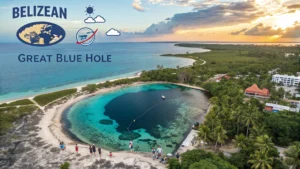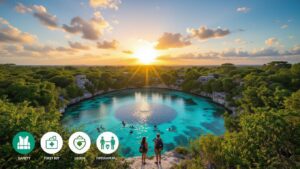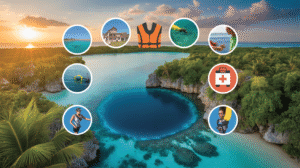Belize is renowned as a premier Caribbean destination, but it is essential for prospective visitors to find a harmonious balance between reveling in the paradise that Belize presents and implementing necessary precautions to safeguard their wellbeing. This extensive guide consolidates the latest crime statistics, government advisories, and authentic insights to equip travellers with vital knowledge, enabling them to explore Belize’s breathtaking beaches, verdant jungles, and remarkable ancient ruins while ensuring their safety remains a top priority.
1. An In-Depth Analysis of Crime Rates and Trends in Belize
As of 2024, Belize reported a homicide rate of 21.7 per 100,000 inhabitants, reflecting a slight rise from the previous year's rate of 21.5. Interestingly, a significant decline in homicides of 29 percent was observed during the first half of 2025 when compared to the same period in 2024, with reported cases dropping from 58 to 41. According to the CompStat report from the Belize Police Department, there was an overall decrease in major crimes by 9 percent, falling from 536 incidents in H1 2024 to 489 in H1 2025. This encouraging trend is attributed to marked reductions in murder (–29 percent), robbery (–15 percent), and theft (–26 percent), showcasing a positive shift in safety for both residents and visitors alike.
| Crime Category | Jan–Jun 2024 | Jan–Jun 2025 | Change |
|---|---|---|---|
| Major crimes | 536 | 489 | –9 percent |
| Murders | 58 | 41 | –29 percent |
| Robbery | – | – | –15 percent |
| Theft | – | – | –26 percent |
2. Crucial Government Travel Advisories for Your Trip to Belize
- U.S. Department of State: Belize is currently designated as Level 2: Exercise Increased Caution due to the prevalence of violent crime, including sexual assault, home invasions, armed robberies, and murder. Notably, the Southside of Belize City is rated as Level 3: Reconsider Travel—it is advisable to steer clear of non-tourist areas located south of Haulover Creek. Source: U.S. Department of State
- Government of Canada: Canadians are urged to exercise a high degree of caution throughout the country, with specific recommendations to avoid non-essential travel to Southside Belize City, which faces ongoing gang- and drug-related violence. Source: Government of Canada
- UK FCDO: The UK Foreign, Commonwealth & Development Office highlights that Belize has one of the highest murder rates globally per capita; serious gang-related violence is primarily concentrated in the Southside of Belize City. However, regions such as San Pedro, Caye Caulker, Placencia, and San Ignacio generally maintain safety for travellers who exercise appropriate caution. Source: UK Foreign, Commonwealth & Development Office
3. Recognising High-Risk Areas and Common Crimes Encountered in Belize
- Belize City (Southside): This region is notorious for gang activity, which significantly contributes to heightened violent crime rates. It is advisable for visitors to avoid non-tourist neighbourhoods, particularly after dark, to ensure their personal safety.
- Border Zones: Areas adjacent to the borders are currently experiencing increased smuggling activities and cross-border violence, especially with Guatemala, which travellers should remain vigilant about.
- Petty Crime Hotspots: Popular locations like San Pedro have reported incidents of pickpocketing and credit card fraud. Always be cautious to shield your PIN when using ATMs, and opt for machines situated inside banks for added security.
4. Proactive Safety Strategies for Travellers Visiting Belize
Enhancing Your Personal Security While Exploring Belize
- Maintain vigilance: It is essential to avoid walking alone at night, particularly in urban areas such as Belize City and Belmopan, where the risk of crime is significantly heightened.
- Secure your valuables: Always utilise hotel safes for storing important items, and keep wallets and mobile phones out of sight to deter potential thieves.
- Be cautious of spiked drinks: Never accept food or beverages from strangers, as this could lead to perilous situations.

Guidelines for Safe Transportation While Travelling in Belize
- Road Conditions: Be aware that most secondary roads in Belize are unpaved and poorly lit. It is advisable to drive only during daylight hours and ensure your fuel tank is filled before setting off on longer journeys.
- Public Transport Caution: Public buses often lack proper maintenance—it's best to avoid them whenever possible. When using licensed taxis, remember that they are not metered; therefore, negotiate your fare in advance to prevent misunderstandings.
- Ferries Safety: When travelling between the cayes, confirm that life jackets are easily accessible and that the vessels are not overcrowded to ensure safe travel.
Engaging in Adventure Activities with Safety in Mind
- When participating in adventure activities such as scuba diving, zip-lining, and cave tubing, always select reputable operators. Verify their safety records and equipment standards to ensure your safety; consider acquiring travel insurance that covers medical evacuation.
- Only swim in designated areas; riptides are prevalent, and lifeguards are often scarce, making it crucial to prioritise safety while in the water.
Important Health Precautions for Travellers Venturing into Belize
- Vaccination Recommendations: While there are no entry requirements for yellow fever, it is highly advisable to receive vaccinations against hepatitis A, hepatitis B, typhoid, and rabies prior to travelling to Belize. For comprehensive information, consult the CDC guidelines.
- Mosquito Protection: Given the year-round risk of diseases such as dengue, chikungunya, and Zika, it is imperative to use EPA-approved insect repellent, wear long-sleeved clothing, and sleep under mosquito nets to minimise exposure.
- Water Safety Guidelines: Adhere to the principle of “boil it, cook it, peel it, or leave it” concerning food and water consumption. Carry oral rehydration salts to effectively manage traveller’s diarrhoea and ensure you remain hydrated.
5. Special Considerations for Women, Children, and LGBTQ+ Travellers in Belize
- Women travelling solo should exercise heightened caution to avoid isolated areas and poorly lit alleys, as there have been reports of harassment in certain regions.
- Members of the LGBTQ+ community may encounter social stigma in Belize; it is prudent to refrain from public displays of affection to maintain personal safety.
- Children travelling independently or with just one parent must possess notarised parental consent letters, as immigration officials in Belize enforce this regulation rigorously.

6. Accessing Emergency Services and Consular Support for Travellers in Belize
- In case of emergencies, always dial 911 for immediate assistance, whether you require medical, fire, or police services while in Belize.
- The U.S. Embassy located in Belmopan and the Canadian Honorary Consul in Belize City are available to assist with issues such as arrests, detentions, or other emergencies. For more information, please visit U.S. Embassy Belmopan.
- Ensure you register with your government’s traveller-registration program, such as STEP for U.S. citizens or the Registration of Canadians Abroad for Canadians, to remain informed and receive necessary assistance.
Comprehensive Bibliography for Informed Travellers
- Belize Police Department’s CompStat report
- U.S. Department of State Belize Travel Advisory
- Government of Canada Travel Advice for Belize
- UK Foreign, Commonwealth & Development Office Advice
- CDC Traveller’s Health: Belize
- U.S. Embassy Belmopan
The Article Is Belize Safe to Visit? 2025 Complete Safety Guide for Smart Travellers appeared first on Belize Travel Guide
The Article Belize Safety Guide 2025: Essential Tips for Smart Travellers Was Found On https://limitsofstrategy.com


